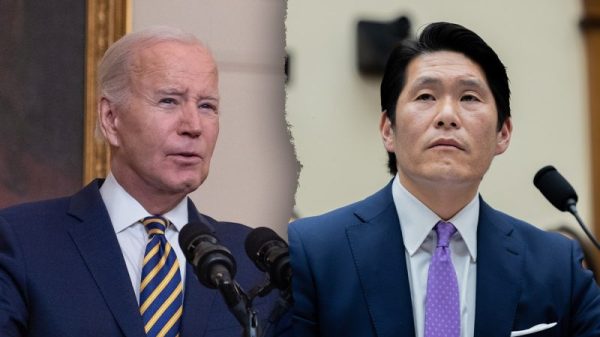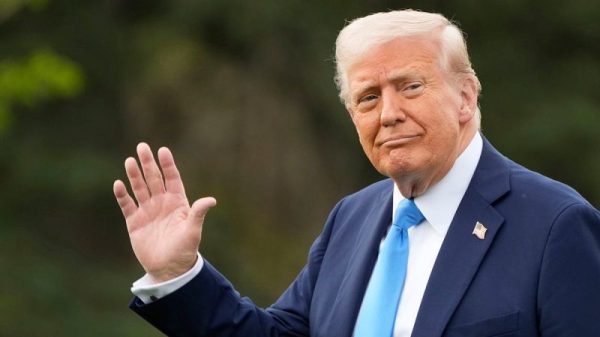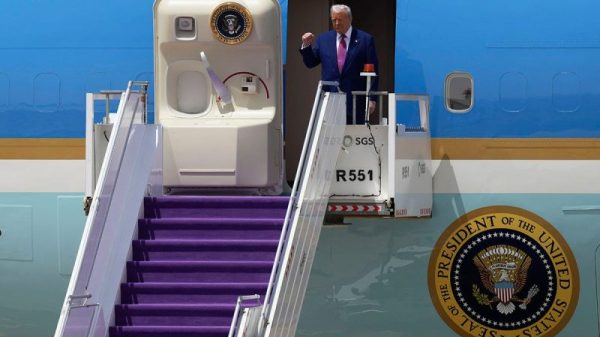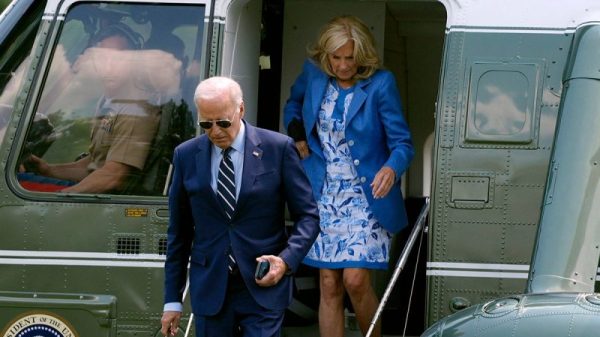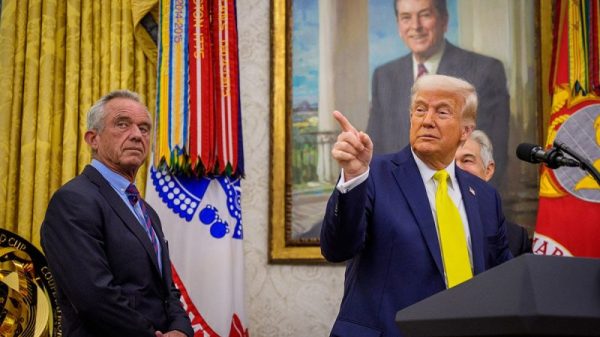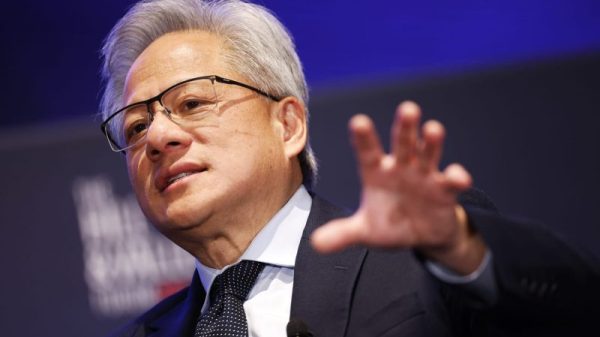Former president Donald Trump faced new criminal charges on Thursday — just not in the case that so many were expecting them to be in.
Rather than an indictment related to Trump’s efforts to overturn the 2020 election, special counsel Jack Smith’s office released additional charges related to Trump’s retention of classified documents.
The superseding indictment also adds a third defendant alongside Trump and Waltine “Walt” Nauta: Carlos De Oliveira is accused of engaging in a plot to delete security footage at Trump’s Mar-a-Lago estate after the government issued a subpoena for it — on behalf of “the boss.”
The new indictment also breaks ground by charging Trump not just with failing to return the documents and obstruction of justice, but also for a “presentation” of information he allegedly showed to someone who was not authorized to see it.
Here are some takeaways.
It’s been apparent for a long time that this case wasn’t just about Trump possessing classified documents when he shouldn’t; it was about allegedly failing to return them when legally required to and, importantly, obstructing efforts to retrieve them.
The superseding indictment drives home how much this trial will be about the alleged coverup.
The most vivid new scene in the indictment adds to what would seem to be a wealth of evidence of alleged obstruction of justice.
The previous version of the indictment was perhaps notable for what we learned from Trump attorney Evan Corcoran. Corcoran’s notes and testimony described multiple instances of Trump apparently not subtly suggesting that documents might go away without being returned to the authorities. At one point, Corcoran in his notes described Trump making a plucking motion, as if suggesting any “really bad” — in Corcoran’s words — documents should just be removed.
But that’s not all the government is working with.
In adding De Oliveira to the case, it describes a scene from weeks after the scenes described by Corcoran.
The basics, according to the indictment: The Justice Department on June 24, 2022, subpoenaed Mar-a-Lago security footage. That day, Nauta changed his travel plans to go to Mar-a-Lago. He arrived June 25, and he and De Oliveira soon went to a security guard booth which contained surveillance monitors. They also approached the storage room where the documents were kept and pointed out the location of surveillance cameras.
Two days later, De Oliveira allegedly had a conversation with an employee who worked with someone in the IT department. After taking the employee to a room and asking that their conversation be kept confidential, De Oliveira allegedly asked the employee about deleting a server with 45 days of security footage on it. When the employee said they didn’t know if such a thing was authorized, De Oliveira allegedly told him “the boss” wanted it deleted.
The indictment doesn’t draw an explicit line between this and Trump or even say definitely that he was “the boss” described. But the timeline the indictment lays out — describing conversations between Trump and both men around this time — suggests the government intends to prove that it was.
Should the government do that, the scenes described would be even more compelling than Corcoran’s notes. Imagine if it’s proven that the former president who for years derided Hillary Clinton for purportedly destroying evidence about her private email server tried to have the contents of his own server deleted shortly after a government subpoena.
And unlike Clinton, who was never accused of actually getting rid of pertinent evidence — then-FBI Director James B. Comey said there was “no evidence that any of the additional work-related emails were intentionally deleted in an effort to conceal them” — the government here describes an attempt to destroy obviously important information it was seeking.
The previous version of the indictment described two instances in which Trump allegedly showed off classified information to people who weren’t authorized to see it.
But Trump wasn’t actually charged with a crime for doing so, and he suggested those instances weren’t all they were cracked up to be. He suggested one document — involving Iran — didn’t actually exist, and that a recording of him talking about it in front of unauthorized people was merely “bravado.”
Smith might now be calling Trump’s bluff.
The superseding indictment repeats the previously listed 31 counts that allege Trump willfully retained national defense information. But now we have a new count, No. 32: A “presentation concerning military activity in a foreign country.”
This refers back to the previously known allegation, involving a July 2021 recording of Trump describing and apparently wielding “secret information” about Iran, which he acknowledged hadn’t been declassified.
It hasn’t been clear that the government actually had the document. But the indictment suggests it believes it does. (The indictment lists Trump as possessing the document through Jan. 17, 2022, which might mean the National Archives recovered it in 15 boxes the following day.)
Proving Trump had this specific document would be key in another way. It is, after all, the document that he acknowledged in real time he hadn’t declassified. Proving he had a document he admitted remained classified would torpedo Trump’s attempts to claim he actually declassified the documents — which Trump has suggested but his lawyers conspicuously haven’t argued in court.
The other big significance here: The government is no longer just charging Trump with having the documents and obstructing efforts to get them back; it apparently signals an intent to prove that his decision to keep the documents actually resulted in his exposing sensitive information.
A major question has been whether Nauta might flip against Trump, since the evidence against him appears to be compelling, and Trump is obviously the bigger target.
But with De Oliveira, the government has another strong candidate for flipping — if not stronger.
The last count on the superseding indictment — No. 42 — involves alleged false statements by De Oliveira, and they would appear to put him in serious trouble.
In a January interview with the FBI, De Oliveira allegedly offered blanket denials that he participated in unloading White House boxes when they arrived at Mar-a-Lago in January 2021. He said he wasn’t aware of the boxes and “never saw nothing.” He said he didn’t know where they were even stored.
The government says in the indictment that De Oliveira “personally observed and helped move” Trump’s White House boxes in January 2021.
The least serious of the counts against De Oliveira might just be the easiest to prove.

